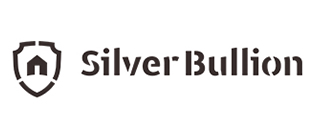Navigate
Article List
- Chairman’s Foreword – A look back at 2016 and what’s ahead
By Sunil Kashyap, Chairman, SBMA
- Gold Market Outlook for 2017
By Nikos Kavalis, Director, Metals Focus
- Advancing Islamic Finance Through Gold
By Shaokai Fan, Director, Central Banks and Public Policy, World Gold Council
- Expanding Access to Physical Gold
By Martin Huxley, Managing Director, INTL FCStone
- Feature: Metalor Technologies Singapore Pte Ltd – Meeting Asia’s Precious Metals Demand
By Metalor Technologies Singapore Pte Ltd
- Singapore’s Listed Gold Plays
By Geoff Howie, Market Strategist, Singapore Exchange
- Creating New Markets, Enabling Accessibility: From Traditional to Digital
By Loh Mun Chun, Director, GoldSilver Central
- A Golden Resurgence: Re-establishing Singapore as Asia’s Precious Metals Hub
By Lester Lu, Divisional Director, Metals & Minerals, IE Singapore
- Developments in the LBMA Gold Price
By Matthew Glenville, COO, ICE Benchmark Administration
- SBMA News
By Albert Cheng, CEO, SBMA
Article List
- Chairman’s Foreword – A look back at 2016 and what’s ahead
By Sunil Kashyap, Chairman, SBMA
- Gold Market Outlook for 2017
By Nikos Kavalis, Director, Metals Focus
- Advancing Islamic Finance Through Gold
By Shaokai Fan, Director, Central Banks and Public Policy, World Gold Council
- Expanding Access to Physical Gold
By Martin Huxley, Managing Director, INTL FCStone
- Feature: Metalor Technologies Singapore Pte Ltd – Meeting Asia’s Precious Metals Demand
By Metalor Technologies Singapore Pte Ltd
- Singapore’s Listed Gold Plays
By Geoff Howie, Market Strategist, Singapore Exchange
- Creating New Markets, Enabling Accessibility: From Traditional to Digital
By Loh Mun Chun, Director, GoldSilver Central
- A Golden Resurgence: Re-establishing Singapore as Asia’s Precious Metals Hub
By Lester Lu, Divisional Director, Metals & Minerals, IE Singapore
- Developments in the LBMA Gold Price
By Matthew Glenville, COO, ICE Benchmark Administration
- SBMA News
By Albert Cheng, CEO, SBMA
Advancing Islamic Finance Through Gold
By Shaokai Fan, Director, Central Banks and Public Policy, World Gold Council
Published on March 9, 2017


Shaokai Fan is the Director for Central Banks and Public Policy at the World Gold Council, responsible for advising central banks on gold matters and promoting free and fair gold markets globally. Prior to this position, Shaokai held multiple roles at Standard Chartered Bank, where he helped to counsel official sector institutions on the implications of RMB internationalisation and promoted the RMB as a new reserve currency. Shaokai worked previously as an International Economist for the U.S. Treasury Department and also held roles in capital markets and investment banking.
The launch of the Shari’ah Standard on Gold in December 2016 promises an increase in the diversity of Shari’ah gold-compliant investment products for the $2-trillion Islamic finance market.
The Shari’ah Standard on Gold, the definitive guide to investing in Shari’ah-compliant gold products, was launched by the World Gold Council and the Accounting and Auditing Organization of Islamic Finance Institutions (AAOIFI) on 5 December 2016. Officially known as “AAOIFI Shari’ah Standard No. 57 on Gold and its Trading Controls” the Standard for the first time sets out comprehensive Shari’ah rules for investing in gold.
The arrival of the Standard can potentially bring about profound changes for both Islamic investors and the Islamic finance industry as a whole. Investors will be able to access gold’s unique attributes as a long-term store of value, diversification tool, and risk-mitigating asset, while the latter will see its investible universe expand through the addition of the large and liquid gold market. The launch of the Standard also has the potential to spark an influx of new products, innovation, and ideas. For Southeast Asia, this means a potential boon for gold products aimed at the growing Islamic finance market in this region.
Although gold has a deep and historical connection with Islamic culture, its treatment as an investment product is subject to complex practices. For example, gold must be exchanged immediately, which results in the modern requirement that gold financial products must be exchanged within the same day or trading session1. The complexity of Islamic rules for gold products was a major impediment to the development of gold financial products in Islamic finance, despite an underlying demand for gold by many investors. Creating harmonised and authoritative Shari’ah guidance for gold was therefore imperative to enable greater accessibility to the asset class by Islamic investors.
Recognising this need, the World Gold Council worked with AAOIFI – the leading standard setting body in Islamic finance – to develop a definitive standard for investment into modern gold products that is widely recognised by the Islamic finance community.
The complexity of Islamic rules for gold products was a major impediment to the development of gold financial products in Islamic finance, despite an underlying demand for gold by many investors.
Southeast Asia is a natural home for new Shari’ah-compliant gold products. Malaysia has long been a vanguard in Islamic finance with a robust array of Shari’ah-compliant solutions catering to a wide variety of investors. Indonesia is the world’s most populous Muslim country and the government has prioritised the development of Islamic finance as a financial development policy. Gold has performed better in ringgit and rupiah terms over the past decade than in U.S. dollar terms, reflecting its usefulness as a wealth preservation instrument for investors in the region. The World Gold Council is actively working with several Southeast Asian financial services providers to provide new gold financial products for retail consumers that will comply with the Standard.
Building on the Standard, the Singapore Exchange (SGX) announced that its Singapore Kilobar Gold Contract has become the world’s first Shari’ahcompliant gold futures contract. Designed to be the kilobar benchmark for Asia, SGX launched the world’s first exchange-traded, physically delivered wholesale gold futures in October 2014 in partnership with the World Gold Council and the Singapore Bullion Market Association. The SGX Singapore Kilobar Gold Contract is now certified by Amanie Advisors, a leading advisory firm specialising in Islamic finance solutions, to comply with the Standard.
SGX believes that this unlocks a new investment and risk management solution for the rapidly growing Islamic finance industry estimated to hold about $2 trillion in assets Islamic investors now have exposure to, and to source physical gold via the contract, confident that the trading of the contract adheres to Shari’ah rules.
Embedding gold as a Shari’ah-compliant asset class can propel Islamic finance into the next stage of development by not only expanding the size of the investment universe, but the depth as well. The launch of the Shari’ah Standard on Gold marks the beginning of a new relationship between gold financial products and Islamic finance. Gold’s unique characteristics are now more accessible to Islamic investors, while the industry can benefit from the potential innovation sparked by the inclusion of a new asset class. Given the long and rich history of gold in Islamic culture, it is perhaps fitting that this most ancient of elements is now able to lead the future of Islamic finance.
Embedding gold as a Shari’ahcompliant asset class can propel Islamic finance into the next stage of development by not only expanding the size of the investment universe, but the depth as well.
Notes
1 Under the Standard, the exchange of gold for currency must occur within the same day or trading session. The buyer has to take possession of the gold in person or through an agent, either physically or constructively. The gold must be allocated and the record or certificate of allocation must be issued on the day of concluding the contract (T+0). As long as constructive ownership of the gold is passed from seller to buyer within the same day or session, the physical delivery of the gold can be made at a later time.

Shaokai Fan is the Director for Central Banks and Public Policy at the World Gold Council, responsible for advising central banks on gold matters and promoting free and fair gold markets globally. Prior to this position, Shaokai held multiple roles at Standard Chartered Bank, where he helped to counsel official sector institutions on the implications of RMB internationalisation and promoted the RMB as a new reserve currency. Shaokai worked previously as an International Economist for the U.S. Treasury Department and also held roles in capital markets and investment banking.

























